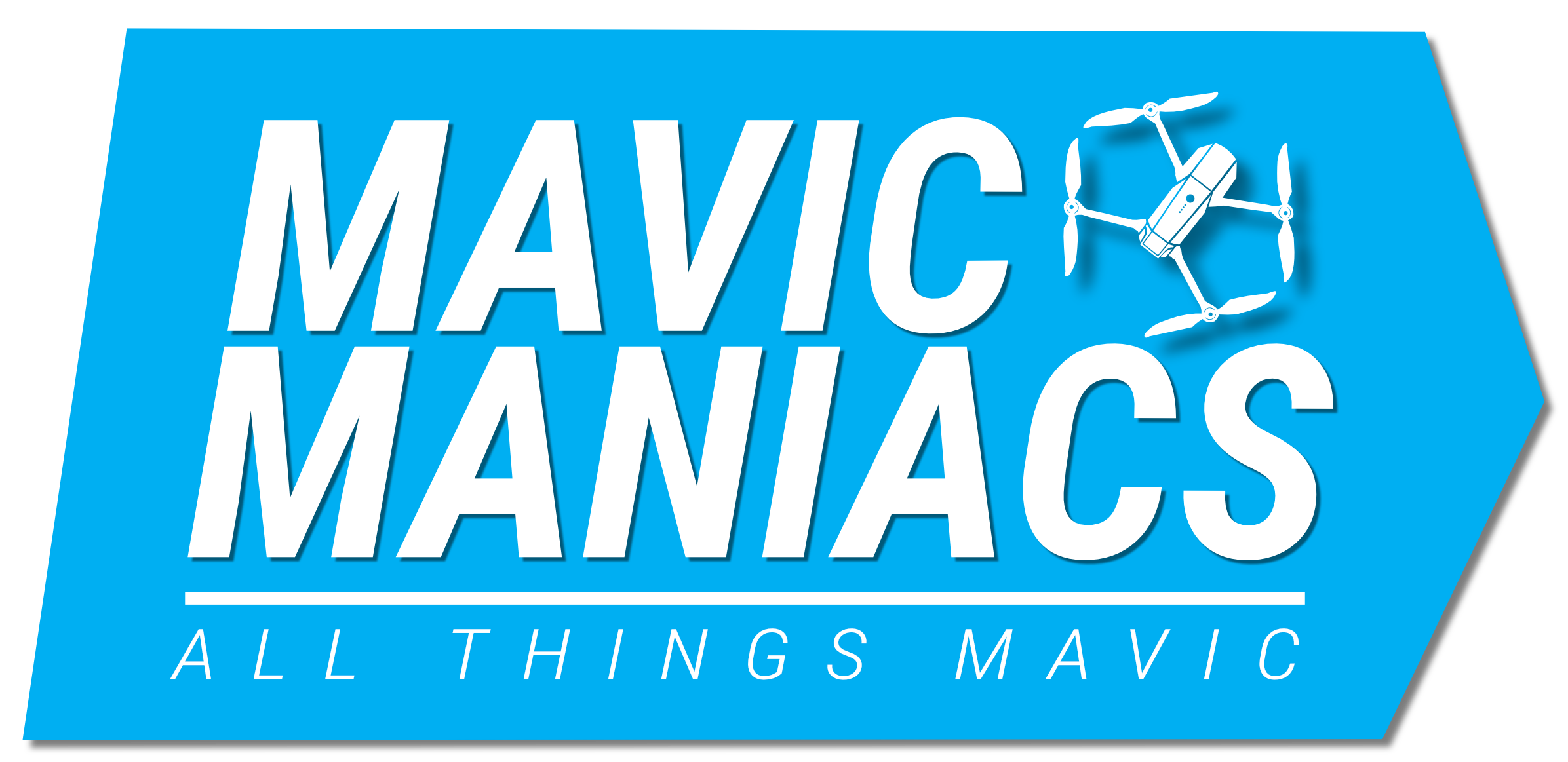
How To Invest In Drones And The Drone Industry | Exciting Options Opened Up In 2019
September 17, 2019Most of the time, when we think of drones, we’re thinking of the next one we want for our fleet or what new feature is coming down the pipe. Rarely do we think about investing in a company related to drones. Today’s post is going to talk about How To Invest In Drones And The Drone Industry. Who knows? The next time you see a particular drone flying or an ad for some new model, you might be able to sit back and say, “I own a piece of that company.”.
Before we get too far into this article, I want to make it clear. When I talk about How To Invest In Drones And The Drone Industry, I’m referring to backing companies in various drone fields (software, hardware, service, etc.) and not buying a drone or drone-related products and services. Technically, you can invest in a drone to enhance your business and so on, so I wanted to make this clear.
Now that that is out of the way let’s talk about investing in drones and the drone industry. We’ll discuss if it’s even possible (spoiler alert, it is), why you might want to invest, how to invest, and then talk about whether you should invest or not.
Table of Contents
Let’s get started…
THIS POST MAY CONTAIN AFFILIATE LINKS. PLEASE SEE MY AFFILIATE DISCLOSURE FOR MORE INFORMATION.
 Can I Really Invest In Drones And The Drone Industry?
Can I Really Invest In Drones And The Drone Industry?
In short, yes, you can.
If you’re really into drones or get excited when something drone-related comes up, you might wonder how you can get in on the action. That action doesn’t have to be just as a user/consumer. Drone companies, whether they’re hardware manufacturers, software developers, makers of accessories, etc., are simply companies. As such, you can invest in them in various ways.
Here are some ways you can contribute:
Offer Your Skills And Services
If you’re an avid drone pilot, consider offering your piloting skills to a company. You might be a test pilot, demo pilot, part of a team (i.e., ground support, visual spotter, etc.), and so on. This type of position might be paid, or it might be voluntary. Either way, you’re providing value to a company that might not otherwise be able to meet demand. This is especially true of startups where funds are extremely limited.
Share An Idea You Have
Often, companies focus on many aspects of the market. If you have a great idea for a software or hardware feature or maybe the next must-have accessory, consider sharing that with a company. I won’t get into intellectual property rights here so if you’re looking to profit from this type of venture, make sure you seek legal counsel. That said, you can always give your idea away, if you just want to see it come to fruition or simply help a company out.
Simply Reach Out
I’m sure there are other ways to help various companies out beside the two listed above. You can always shoot them an email or give them a call and see if there’s anything you can do for them. Maybe you can help them choose a venue in your local area for an event or help organize/manage that event. Although this isn’t a common practice, it never hurts to ask, and you just might be surprised at their response. At the very least, it will put you on their radar.
Financially Invest In Them
Have you heard the phrase, “It takes money to make money.”? It’s true. It takes money to build and run a business. You can actually help companies with their financial obligations in several ways. I will cover this in more detail in the section titled “Tell Me How To Invest In Drones And The Drone Industry.”
So, why would you want to invest in drones and the drone industry? Let’s discuss that now…
 Why Would I Want To Invest?
Why Would I Want To Invest?
There are several reasons someone might want to invest in drones and the drone industry. Each person’s reasons for investing may vary. It could be a single driving force or a combination of many options that sparks someone’s desire to invest. Let’s take a look at a few possible reasons for investing in drones and the drone industry:
To Make Money
Let’s be real; most people’s primary force in investing in a company is to make money. The expectation is to buy a stock or invest pre-IPO and make a profit from the difference between the purchase price and the increased value of the company in the future. This assumes the company does increase in value.
To Be A Part Of Something Special
Some people want to get in, simply because they want to be a part of something exciting or that’s making a difference. It’s a feel-good investment. Think of providing clean water, cleaning up the environment, getting bragging rights for helping bring the next big thing to market, etc. The investor may make money, or they may simply be helping out.
Diversification
Sometimes a person might invest as a way to diversify their portfolio. That said, diversification is usually still with the intent to make money, so this really isn’t a separate reason.
To Help
Now and then you’ll come across an idea or movement that j speaks to you. You might even have a particular skill set that would benefit the company (accountant, business management skills, public speaking, etc.). In such cases, you might be moved to offer your assistance to help ensure the company reaches its goals, etc.
I’m sure there are other reasons someone might want to invest in a company. In the end, only the investor really knows why they’re investing.
Now, how do you invest in drones and the drone industry? Let’s find out…
 Tell Me How To Invest In Drones And The Drone Industry.
Tell Me How To Invest In Drones And The Drone Industry.
As mentioned before, there are several ways to invest in drones and the drone industry. I’m going to group them into two categories; non-financial and financial. Neither one is better than the other; they just go about investing in different ways with different outcome expectations. Let’s start with non-financial investing…
Non-Financial
This category covers the first three options I listed above; Skills, Ideas, and Reaching Out.
When it comes to offering your skills and services, you can go about this two different ways. You can check the company’s job openings to see if they are looking for someone with your skillset or you can simply reach out to them and let them know what you can do for them.
As for sharing an idea or reaching out to see if you can be of any help, you’re really limited to contacting the company. It’s not like they’re going to have an ad out that says “Looking for someone with idea X” as they’d already have the idea at that point. You can reach out via email, web form, phone, or even show up in person.
Financial
For me, this is an exciting category. Financial investment is where I can provide money to the company and, hopefully, see a return on that investment down the line. In addition to that, I get that warm feeling that I’m helping a company succeed. There are multiple ways to help a company financially. Much of it will depend on where in its life cycle that the company is.
Angel Investing
Recently I’ve been getting into Angel Investing. This is where you can help companies in their startup phases before they even have a stock offering, etc. Think Shark Tank.
This is a riskier financial investment vs. other investing options, as many companies never get out of the startup phase. That said, it also has the most potential to provide truly amazing returns on your investment, should the company succeed, but that realization is usually years down the road. Angel Investing is not a buy it now, sell it next month type of investment.
One company I’ve personally invested in (this is not an endorsement) is Soar Robotics. You can learn more about them and the investment opportunity here.
What’s cool about Angel Investing is that it’s been opened recently to the “common man.” Before, only certain people of wealth had access to such investment opportunities. Now you can invest with as little as $50 ($100 in the case of Soar Robotics), something that simply wasn’t possible before.
Venture Capitalist
VC investing is kind of like an Angel Investor but usually involves investing in a VC fund that has a committee that makes investment decisions. The pros to this include access to more extensive investment options that have higher minimum investment requirements, and the committee usually does a pretty good job of vetting investment opportunities. VC’s also tend to target pre-IPO companies shortly before the IPO stage. By doing this, the VC company hopes to obtain profits quicker as the company provides it’s IPO. Cons include meeting stringent income/net worth requirements and minimum investment tiers.
Stock Market
Most people think of stocks when they think of investing. Yes, you can buy stock. Doing so gives the company capital to work with and you a piece of the pie. The pros include being able to buy however many shares you want/can afford, the only minimum being the individual stock price (and even that isn’t really a barrier anymore as there are now companies that let you buy partial stocks and they just basically pool everyone’s money together to buy them, etc.). As for cons, well it’s an investment, so there’s always the possibility of losing money and really, it’s just dull to me.
Buy Products/Services
Of course, buying the company’s products and services is also a way to support them. That purchase gives them a little profit to work with. One prop is that you have a new product or service. On the downside, you may not have wanted/needed that product or service, and you’re now out $X that doesn’t have much of a chance of growing.
There may be other ways to invest in a company, but these are the primary ones I could think of. If you have others, please let me know by commenting below.
Now, let’s discuss if you should invest…
 Should I?
Should I?
That’s the real question. The answer depends on many factors. Let’s take a look at some to consider:
Do You Want To Invest?
If you don’t want to invest, don’t. There’s nothing worse than thinking you have to invest in something and then wondering about the investment after you’ve made it. If you’re feeling forced into something, take a step back and evaluate the situation. This bears repeating; If you don’t want to do it, don’t do it.
Can You Afford To Invest?
This is a big one to consider. Don’t invest just for investing’s sake. Take your finances into consideration. Can you afford to do it? If you can’t, don’t put yourself in a situation you’ll regret.
I think of investing as gambling. I try to make the best-informed decision I can, but, in the end, I’m ready to lose it all. That way, I don’t spend more than I can afford to lose, and I don’t have the anxiety associated with it. The way I look at it is, how much can I spend this week at the casino? Then I decide if I want to go gamble there or invest it, etc. It’s discretionary monies that I use.
Which Investment Path Should You Take?
This one is a personal preference and risk management choice. Some avenues are arguably safer than others, but, at the same time, earning potential varies as well. Take the time to evaluate your risk/comfort level and then make your choice(s). If you have the means, you can always split your investments across multiple platforms, basically diversifying your risk.
You may also be limited by the investment options available for the company your interested in. It may be that Company X is only available as a startup opportunity, and you might be locked into the Angel or VC options.
Whatever you end up choosing, make sure you understand the risks, can afford to lose it all, meet whatever criteria are required for the investment type and do your due diligence on the company before giving them your money.
Conclusion
As you can see, when it comes to How To Invest In Drones And The Drone Industry, you have a lot of options available to you. In the end, only you can decide if and how to proceed. As of late, I like the Agel Investing opportunities, but they come at a higher risk, and they are long-term investments.
Other considerations include potential tax benefits and pitfalls. I am not an accountant or tax attorney, so I can’t really give you advice on this subject, but you can realize tax savings in some cases.
What are your thoughts? Have you invested in any drone companies (other than buying their products/services)? Will you be investing now and, if so, what path will you take? Did I miss something you think should be included in this article? Please let me know by commenting below.
Thank you,
Scott Hinkle
MavicManiacs.com





Thanks for this article. Great idea. You can invest in drones and the drone industry to get even more profits from your drones.
Investing in drones and the drone industry is a great idea for any drone enthusiast, because if you follow the trends, you will know the best companies to invest in. For example, when they recently had to make the drones have the signaling beacon for planes and helicopters, that had a big financial effect on drone companies. So an investor could have benefited from drone knowledge.
Absolutely!
Making sure your drone can be seen by other aircraft is big now and companies that make the visual beacons are now making a killing. ADS-B functionality is being mandated next year. DJI has already committed to it and other companies are coming up with retrofit options.
Thanks for commenting,
Scott
Investing in drones and the drone industry is a smart move.
Thank you for explaining how you can actually invest in drone companies that you want to support. That will help them develop new products and advance their technology.
I know what you mean about companies being surprisingly receptive to when you reach out. I did this on my own website, contacting manufacturers of the products I was promoting. They are always very helpful and sometimes even offer me a direct affiliate program with higher commissions.
Thanks! I followed you on pinterest and pinned the post.
I’m happy to help where I can. I’m glad you liked it.
That’s a great example. It just goes to show, it doesn’t hurt to try!
Thank you,
Scott
This is really interesting, drones and drone drone companies sounds like a profitable and adventurous offer. Me as a person, I love trying new things, I’ve been reading about different investment offers and believe me this is the first time I’m reading about an idea of investing in drones and drone companies.
I want to chip in something, its kind of a diverting idea but I think its worth sharing. I think being an affiliate marketer for drone companies should be a great idea. What do you think???
I really enjoyed reading through this post and its really useful. Thanks.
It’s great to be an affiliate marketer for drone companies and companies that sell drones (like Amazon). Helping to get drones and drone related information to the masses is always good.
I’m actually an affiliate with several companies including DJI and Amazon. Chances are, if you follow a link on this site, it’s an affiliate link.
I’m glad you enjoyed the post,
Scott
Hello everyone,
I just wanted to let you know that I’m working on a new website for Angel Investors. Since I mentioned angel investing as a way to invest in drone-related companies, I thought I’d mention this site as well. It’s all about collaboration and information sharing for both accredited and non-accredited investors.
It’s still very much in the testing and setup phases but I already have forums, live chat, and private messaging setup and running. What I mean by this is it’s functional but it’s certainly not pretty, yet.
That said, I’m asking anyone that’s interested in Angel Investing to head on over and sign up for the Test Membership and take it for a spin. I’d love your feedback on layout/organization and functionality.
Here’s the URL: https://angelpowwow.com
Thank you,
Scott Hinkle